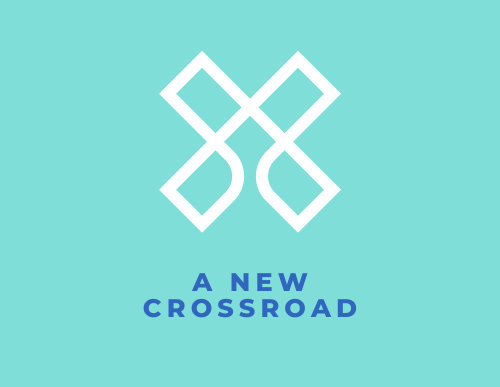Understanding Opioid Addiction Treatment
In our mission to provide comprehensive care for mental health and addiction, we place great emphasis on effective opioid addiction treatment. By understanding the types and effectiveness of various medications, we can offer tailored solutions that best meet the needs of our patients.
Types of Medications
There are several types of medications available for the treatment of opioid addiction. These medications work in different ways:
- Naltrexone: An antagonist drug, naltrexone blocks opioid receptors in the brain, preventing the effects of opioids. It is approved by the FDA for opioid dependence and is commonly administered once a month.
- Buprenorphine: A partial agonist, buprenorphine activates opioid receptors but produces a weaker effect. It helps to reduce withdrawal symptoms and cravings.
- Methadone: A full agonist, methadone activates opioid receptors in the brain to prevent withdrawal symptoms and reduce cravings. It is administered daily under medical supervision.
Effectiveness of Different Medications
Different medications have shown varying levels of effectiveness in treating opioid addiction. To better understand their impact, let’s examine some findings:
| Medication | Administration | Effectiveness | Relapse Rate | Time to Relapse |
|---|---|---|---|---|
| Naltrexone | Once a month | Effective in preventing relapse | 43% | 10.5 weeks |
| Control Group | Standard treatment | Less effective | 64% | 5 weeks |
(Data Source: Penn Medicine)
Extended-release naltrexone (XR-NTX) has shown increased opioid abstinence rates, higher treatment retention, decreased drug craving, and reduced relapse rates. Notably, in a 24-week study, individuals receiving naltrexone did not experience any overdoses, highlighting its potential in preventing opioid-related overdoses.
Our approach at A New Crossroad ensures that patients receive personalized care plans, incorporating the most effective medication options. We believe in empowering change and providing the best support for individuals on their journey to recovery. Explore our comprehensive services, including suboxone treatment and counseling, to see how we can help you achieve lasting wellness.
Naltrexone Treatment
At A New Crossroad, we offer comprehensive opioid addiction treatment tailored to the needs of each individual. One of the treatments we utilize is Naltrexone, a medication that plays a pivotal role in preventing drug relapse, especially among those recovering from opioid dependency.
Administration and Benefits
Naltrexone is administered once a month as an extended-release injection. This method ensures consistent medication levels in the body, aiding in the prevention of relapses. The drug operates as an antagonist, which means it blocks the effects of opioids, such as heroin and prescription painkillers. By doing so, Naltrexone effectively reduces cravings and diminishes the euphoric effects if opioids are used.
According to a study by Penn Medicine, Naltrexone was proven to be more effective than traditional treatment methods in preventing drug relapse among ex-prisoners addicted to opioids. This makes it a valuable alternative to other medications such as methadone, which have been surrounded by controversy.
Study Findings on Naltrexone
Extensive research highlights the effectiveness of Naltrexone in opioid addiction recovery. In a randomized trial involving 153 ex-prisoners:
- Relapse Rates: Those treated with extended-release Naltrexone had a 43% relapse rate compared to a 64% rate in the control group receiving standard treatment.
- Time to Relapse: The median time to relapse for the Naltrexone group was 10.5 weeks, whereas it was only 5 weeks for the control group.
- Overdose Incidents: During the 24 weeks of treatment, no overdoses were reported in the Naltrexone group, while the control group experienced some overdose instances.
| Study Parameter | Naltrexone Group | Control Group |
|---|---|---|
| Relapse Rate | 43% | 64% |
| Median Time to Relapse | 10.5 weeks | 5 weeks |
| Overdose Incidents | 0 | Some |
These findings suggest that Naltrexone significantly reduces the likelihood of relapse and overdose, making it a reliable option for those battling opioid addiction (Penn Medicine).
We understand that every patient’s journey is unique, and thus we incorporate Naltrexone as part of our individualized care plans. Our approach at A New Crossroad ensures that patients receive not only effective medication but also comprehensive support through counseling and other therapeutic interventions.
For those seeking additional avenues of mental health support, we also offer specialized treatments for conditions such as ADHD, anxiety, PTSD, bipolar disorder, and more. Our mission is to empower positive change in all aspects of mental health and addiction recovery.
Buprenorphine and Methadone
Comparison of Treatments
When it comes to opioid addiction treatment, both buprenorphine and methadone have been widely studied and utilized due to their proven effectiveness. These medications work by targeting the opioid receptors in the brain, but they do so in slightly different ways.
- Buprenorphine: A partial opioid agonist, which means it activates the opioid receptors but produces a smaller response compared to full agonists like heroin or methadone. It’s available in various formulations and must be administered at a sufficiently high dose, generally 16 mg per day or more, to be effective (National Institute on Drug Abuse).
- Methadone: A full opioid agonist, which means it fully activates the opioid receptors. It is often administered in a controlled clinical setting due to its potential for abuse. Studies have demonstrated that methadone is highly effective in reducing opioid use and improving retention in treatment programs.
Comparative Table of Buprenorphine and Methadone
| Feature | Buprenorphine | Methadone |
|---|---|---|
| Type | Partial Agonist | Full Agonist |
| Administration | Sublingual tablets or film, injections | Oral solution or tablets |
| Dosage | Generally 16 mg/day or more | Variable, often determined by clinical assessment |
| Risk of Abuse | Lower compared to full agonists | Higher, requires controlled distribution |
| Treatment Setting | Can be prescribed in an outpatient setting | Typically administered in a clinic |
Benefits of Buprenorphine and Methadone
Both buprenorphine and methadone offer unique benefits, making them valuable tools in the treatment arsenal against opioid addiction.
- Buprenorphine: Lower Risk of Abuse: As a partial agonist, the potential for misuse is lower compared to full agonists.
- Ceiling Effect: This means that beyond a certain dose, the effects plateau, reducing the risk of overdose.
- Convenience: It can be prescribed in an outpatient setting, allowing more flexibility for patients.
- Efficacy: Studies have shown that patients maintained on 16 mg of buprenorphine daily had significantly lower treatment failure rates compared to those on a placebo.
- Methadone:
High Effectiveness: As a full agonist, methadone can be very effective in managing severe opioid dependence. - Treatment Retention: Methadone treatment programs often see high rates of patient retention due to the medication’s potent effects.
- Reduction in Illicit Drug Use: Studies have found methadone to significantly reduce opioid-positive drug tests and self-reported heroin use.
We prioritize the well-being of our patients by offering tailored treatment plans that may include buprenorphine, methadone, or a combination of treatments to best suit individual needs. For those interested in learning more about our approach, explore our other services such as suboxone treatment, ptsd treatment, and depression treatment.
Importance of Counseling
At A New Crossroad, we understand the critical role that counseling plays in opioid addiction treatment. Counseling is not just a supportive service but a cornerstone of a comprehensive recovery plan.
Role in Opioid Addiction Recovery
Counseling for opioid use disorder (OUD) addresses both the emotional and psychological challenges faced by individuals in recovery. While Medication-Assisted Treatment (MAT) focuses on the physical aspects of addiction, counseling provides a holistic approach, integrating emotional and mental health support. According to MedlinePlus, counseling can offer various resources and supportive services essential in assisting individuals through their recovery process. Programs often include:
- Cognitive-behavioral therapy (CBT)
- Group therapy sessions
- Family counseling
- Motivational interviewing
Studies suggest that integrating these counseling methods with MAT can significantly improve outcomes. This combined approach ensures that individuals receive the physical, emotional, and mental support necessary for long-term recovery. For instance, CBT helps in altering the negative thought patterns that contribute to addiction, while group therapy provides a support network for shared experiences and encouragement.
Personalized Care Plans
At A New Crossroad, our counselors collaborate closely with medical professionals to create personalized care plans. Each plan is tailored to address the unique challenges and needs of our clients, encompassing physical, emotional, environmental, spiritual, and financial health. Our approach ensures that every aspect of an individual’s well-being is considered, facilitating a more comprehensive path to recovery.
| Aspect | Importance |
|---|---|
| Physical Health | MAT management, exercise routines, nutrition counseling |
| Emotional Health | Support groups, individual therapy, stress management |
| Environmental Health | Safe housing referrals, community support services |
| Spiritual Health | Meditation, spiritual guidance, mindfulness practices |
| Financial Health | Job training, financial counseling, employment assistance |
Our philosophy is rooted in the transformative power of healing through counseling and connection. We emphasize the importance of building strong relationships and support networks, which are pivotal in fostering long-term recovery.
For more information on the multidisciplinary approach to mental health and addiction treatment at A New Crossroad, explore our related articles:
- ADHD treatment
- Anxiety treatment
- Alcohol abuse treatment
- Bipolar disorder treatment
- Depression treatment
- PTSD treatment
- Suboxone treatment
Our commitment is to provide a comprehensive, personalized, and empathetic approach to opioid addiction treatment, engaging our clients in their own journey towards recovery and wellness.
Addressing Opioid Crisis
Treatment Access and Initiatives
In addressing the opioid crisis, improving access to effective treatment is a critical priority. Despite the proven effectiveness of medications such as methadone, buprenorphine, and naltrexone, these treatments remain underutilized (NIDA).
To combat this issue, multiple initiatives have been undertaken. One notable effort began in 2015 by the Secretary of Health and Human Services (HHS), which aimed to manage prescription opioid and heroin use effectively (NIDA). By 2017, five strategic priorities were established, emphasizing the expansion of treatment accessibility.
At A New Crossroad, we ensure comprehensive access to these crucial medications, alongside tailored care plans for effective opioid addiction treatment. Our holistic approach guarantees that patients receive the necessary support for their recovery journey.
Overdose Prevention and Impact
The impact of opioid overdose presents a dire challenge, evidenced by the dramatic spike in overdose deaths involving opioids, which reached 80,411 in 2021 (NIDA). Effective prevention measures are therefore paramount.
Medications like methadone, buprenorphine, and naltrexone not only aid in reducing opioid use but also significantly lower the risk of overdose mortality. These medications contribute to:
- Decreased opioid use and related symptoms.
- Lowered transmission risks of infectious diseases.
- Decreased criminal activity linked to drug use.
- Increased retention in treatment programs.
- Higher odds of employment.
Prominent focus areas for overdose prevention include expanding the availability of naloxone, enhancing public education, and integrating support services. At A New Crossroad, we strive to incorporate these elements into our comprehensive service offerings.
For individuals seeking detailed information about mental health and addiction treatments, explore our resources on adhd treatment, anxiety treatment, and depression treatment. Our commitment is to empower individuals through tailored, effective care options, reinforcing their journey to recovery.





